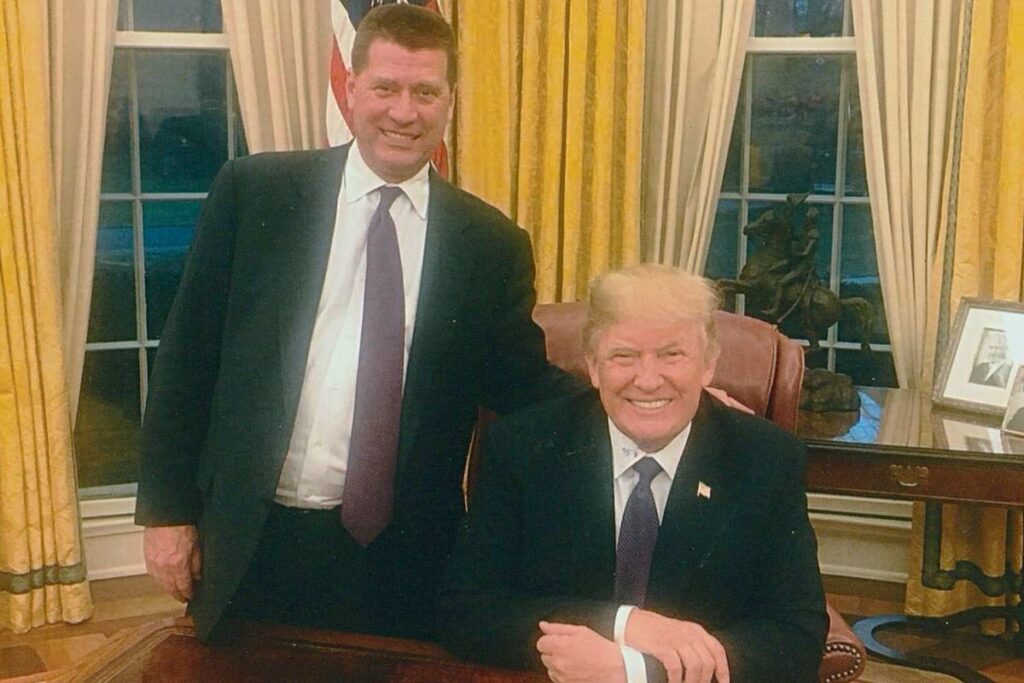Fred Trump III, the nephew of former President Donald Trump, recently spoke about the concerning cognitive health trends in their family, drawing parallels between his grandfather’s decline from Alzheimer’s disease and the recent behaviors of Donald Trump. Fred, 61, emphasized that dementia has been a significant issue in the Trump lineage, directly citing his grandfather, Frederick Christ Trump Sr., who exhibited alarming symptoms of cognitive decline, including wandering off and increasing agitation. Fred felt compelled to speak out, arguing that the public and media fail to consider familial mental health histories when discussing the capabilities of political candidates such as his uncle and Joe Biden, especially as Election Day approaches. He articulated frustration over the lack of attention to this critical issue, suggesting that if observers would dissect the cognitive health of candidates, the Trumps’ history would raise alarms regarding Donald’s abilities.
Fred’s recollections of his grandfather highlight the painful reality of witnessing someone steadily lose their cognitive faculties. He noted that throughout Fred Sr.’s decline in the 1980s, he continued to work, which he did partly to relieve his wife, Mary Anne, who found it exhausting to be around him. The environment around Fred Sr. changed dramatically—what started as a familial annoyance escalated to intense agitation, with doctors advising Mary Anne to sleep apart from her husband at night due to his threatening behavior. Although Fred clarified that his grandfather never displayed physical violence towards his grandmother, he described escalating verbal hostility that deeply affected family dynamics. This atmosphere of fear and anxiety created by Fred Sr.’s condition left a lasting impression on Fred, shaping his views on the potential risks posed by Donald’s declining mental acuity.
Fred also pointed out cognitive challenges exhibited by other family members, including Donald’s late sister, Maryanne Trump Barry, who he believed showed signs of dementia before her death in 2023. He recounted a revealing interaction with Maryanne, who seemed unable to recall meeting his wife Lisa numerous times, a moment that shocked him and further indicated the cognitive issues running in the family. These anecdotes highlight a troubling legacy of mental health problems within the Trump family, an aspect Fred feels is crucial to understanding Donald’s current state of mind, especially as he navigates the political landscape as the oldest presidential nominee.
During a 2023 visit to Mar-a-Lago, Fred noted alarming behavior from Donald, describing him as disoriented and repeatedly repeating himself, along with observing that his uncle had become increasingly vulgar in his language. Fred interpreted these changes as further signs of cognitive decline and expressed his worries about how such behavior combined with Donald’s public persona could be problematic. He made it clear he is not a medical professional but felt justified in recognizing troubling patterns based on his family’s history of dementia. Fred’s concerns are not merely personal; they connect to broader political implications, suggesting that the potential re-election of someone with apparent cognitive challenges could have dire consequences for the nation.
Reflecting on family gatherings, Fred recounted a concerning incident involving Donald and his son, William, who has a genetic mutation. Fred described how Donald dismissed the medical condition as something “not from our genes,” showcasing an unwillingness to acknowledge any potential mental or physical imperfections within the family. Fred insinuated that his uncle’s approach to health and life reflects a need to deny any negative facets of his history. This behavior, in Fred’s view, exemplifies a larger issue where Donald projects confidence to the public while hiding underlying concerns about his own mental health, especially as it relates to family history.
In response to Fred’s assertions, Donald Trump characterized his nephew’s comments as unfounded and disloyal, asserting that he has been supportive of Fred throughout his life. Donald’s son Eric dismissed his cousin’s claims as “garbage.” As the political climate heats up and Donald’s rhetoric becomes increasingly extreme, Fred worries about the potential implications of his uncle’s cognitive health. Unlike their grandfather, whose decision-making did not impact global affairs, Fred notes that Donald’s state could affect national and international ramifications. The concern encapsulates a mix of personal worry for family and broader societal implications, prompting reflection on the vital intersection where health, legacy, and leadership converge in contemporary politics. The evolving narrative of the Trump family and their struggles with mental health thus become critical points of discussion as the nation considers the leadership of Donald Trump once again.

